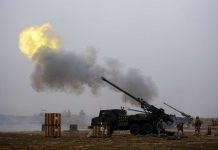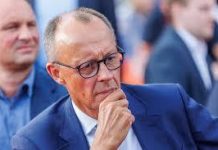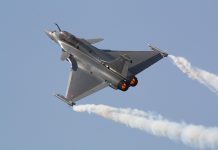
During a visit to Washington on Thursday, British Prime Minister Keir Starmer urged President Donald Trump not to turn his back on Ukraine, emphasizing the importance of a carefully negotiated resolution to Russia’s violent invasion.
Starmer, leader of the center-left, combined diplomacy and directness in his discussions with the Republican president, encouraging him to proceed cautiously in ending Europe’s most significant conflict since World War II. He began the trip by presenting an invitation from King Charles III for a formal state visit to Scotland — a gesture he described as a rare honor, especially given Trump’s previous royal reception from Queen Elizabeth II during his first term.
“You have a unique opportunity to broker a historic peace — one that would be welcomed not just in Ukraine, but around the world,” Starmer told Trump. “But it must be done the right way.”
Trump responded by saying that negotiations toward ending the prolonged conflict were progressing well but warned that the chance to finalize a deal might not last long. “If it doesn’t happen soon, it may not happen at all,” he cautioned.
Starmer’s trip followed a similar diplomatic effort by French President Emmanuel Macron earlier in the week and came just ahead of Ukrainian President Volodymyr Zelenskyy’s scheduled White House meeting. Starmer emphasized that Trump’s influence could be pivotal in securing lasting peace in the region.
His push, alongside Macron’s, reflects growing concerns across Europe that Trump’s eagerness to end the war may lead to excessive concessions to Russian President Vladimir Putin. Some of Trump’s remarks during Starmer’s visit could intensify those concerns — particularly his assertion that Putin is unlikely to reignite hostilities if a truce is agreed.
“I believe he’ll honor his word,” Trump said of Putin. “I’ve known him for years — we went through the so-called Russia hoax together.”
This reference to the “Russia hoax” alludes to the U.S. investigations into whether Trump’s 2016 campaign colluded with Moscow. Although the probe led by Special Counsel Robert Mueller confirmed that Trump’s team welcomed Russian assistance, it found insufficient evidence of an actual conspiracy.
Trump’s efforts to rebuild ties with Moscow have unsettled longstanding European allies, especially as he reenters office with an “America First” agenda that could reshape U.S. foreign policy. Notably, recent U.S.-Russia talks were held without Ukraine or European allies at the table, and this week, the U.S. declined to support UN resolutions that directly blamed Russia for the war — signaling a shift in Washington’s stance under Trump’s leadership.
Although Starmer praised Trump’s desire to end the war, he stressed that peace must not come at the cost of rewarding aggression. “The legacy should favor peacemakers, not those who start wars,” Starmer said.
On Friday, Trump and Zelenskyy are expected to finalize a controversial agreement granting the U.S. access to Ukraine’s valuable mineral resources — essential to sectors like aerospace and defense. Zelenskyy had previously voiced discomfort with the deal due to the lack of firm U.S. security assurances.
Trump has yet to commit to any security guarantees but argued that U.S. economic involvement in Ukraine would itself deter future Russian aggression. “Our presence and work in Ukraine would serve as a deterrent,” he said.
Should a ceasefire be achieved, Starmer and Macron have pledged to send troops to support a European-led peacekeeping force in Ukraine. However, White House officials are skeptical about whether the UK and France can mobilize a strong enough force at this time.
During a separate meeting on Thursday, Zelenskyy discussed Ukraine’s future with Irish Prime Minister Micheál Martin, who expressed openness to contributing peacekeepers. While European leaders don’t expect U.S. troops to join the mission directly, they believe the operation’s success hinges on U.S. backing — including intelligence, surveillance, and rapid-response support in the event of ceasefire violations.
Trump also sees this as a potential opening to restore economic relations with Russia, following years of sanctions imposed by Washington in response to the invasion.
Starmer will host a summit in the UK on Sunday with global leaders to focus on Ukraine’s future, where Zelenskyy is expected to participate. He also announced a significant increase in British defense spending — a move likely to please Trump, who has repeatedly criticized NATO allies for underfunding their militaries.
Under Starmer’s plan, the UK will raise defense spending to 2.5% of GDP by 2027, aiming for 3% by 2035.
Commenting on the initiative, Trump said, “The crisis in Ukraine shows exactly why it’s vital for the UK and other NATO members to invest more in defense. Your increased spending is a strong move — necessary, though unfortunate.”




